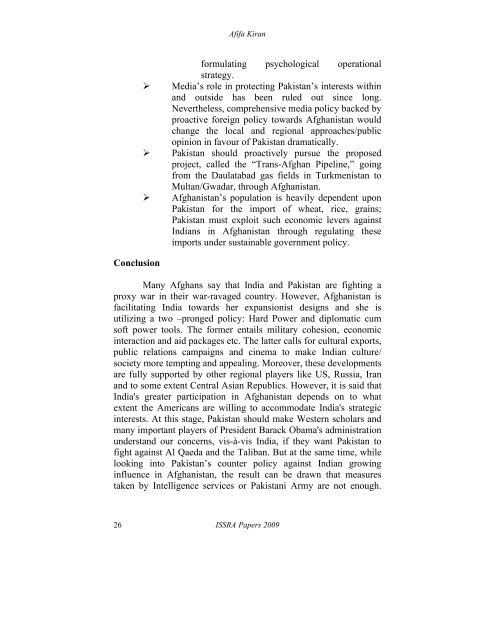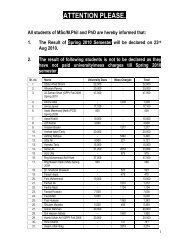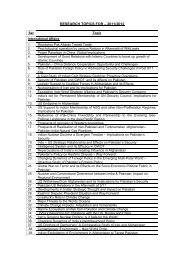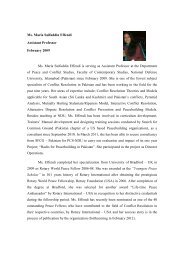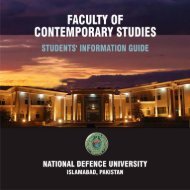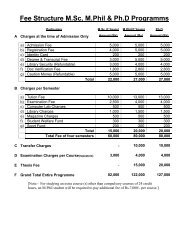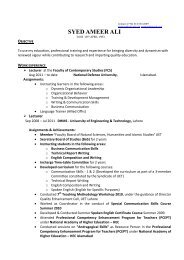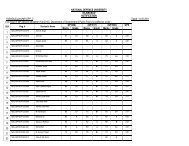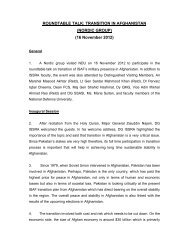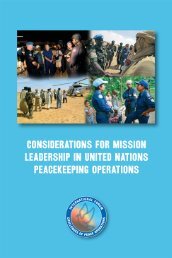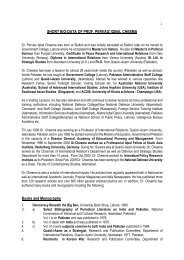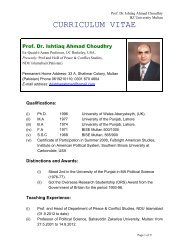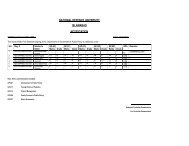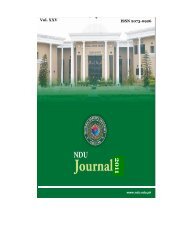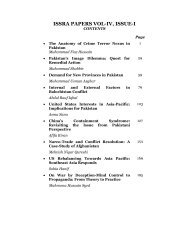issra papers vol i, 2009 - National Defence University
issra papers vol i, 2009 - National Defence University
issra papers vol i, 2009 - National Defence University
You also want an ePaper? Increase the reach of your titles
YUMPU automatically turns print PDFs into web optimized ePapers that Google loves.
Afifa Kiran<br />
Conclusion<br />
formulating psychological operational<br />
strategy.<br />
‣ Media’s role in protecting Pakistan’s interests within<br />
and outside has been ruled out since long.<br />
Nevertheless, comprehensive media policy backed by<br />
proactive foreign policy towards Afghanistan would<br />
change the local and regional approaches/public<br />
opinion in favour of Pakistan dramatically.<br />
‣ Pakistan should proactively pursue the proposed<br />
project, called the “Trans-Afghan Pipeline,” going<br />
from the Daulatabad gas fields in Turkmenistan to<br />
Multan/Gwadar, through Afghanistan.<br />
‣ Afghanistan’s population is heavily dependent upon<br />
Pakistan for the import of wheat, rice, grains;<br />
Pakistan must exploit such economic levers against<br />
Indians in Afghanistan through regulating these<br />
imports under sustainable government policy.<br />
Many Afghans say that India and Pakistan are fighting a<br />
proxy war in their war-ravaged country. However, Afghanistan is<br />
facilitating India towards her expansionist designs and she is<br />
utilizing a two –pronged policy: Hard Power and diplomatic cum<br />
soft power tools. The former entails military cohesion, economic<br />
interaction and aid packages etc. The latter calls for cultural exports,<br />
public relations campaigns and cinema to make Indian culture/<br />
society more tempting and appealing. Moreover, these developments<br />
are fully supported by other regional players like US, Russia, Iran<br />
and to some extent Central Asian Republics. However, it is said that<br />
India's greater participation in Afghanistan depends on to what<br />
extent the Americans are willing to accommodate India's strategic<br />
interests. At this stage, Pakistan should make Western scholars and<br />
many important players of President Barack Obama's administration<br />
understand our concerns, vis-à-vis India, if they want Pakistan to<br />
fight against Al Qaeda and the Taliban. But at the same time, while<br />
looking into Pakistan’s counter policy against Indian growing<br />
influence in Afghanistan, the result can be drawn that measures<br />
taken by Intelligence services or Pakistani Army are not enough.<br />
26<br />
ISSRA Papers <strong>2009</strong>


